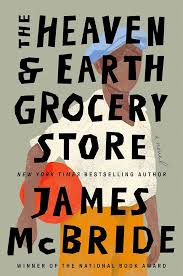Chapter 9: The Robin and the Sparrow
byChapter 9: The Robin and the Sparrow opens a delicate window into the quiet complexities that shape relationships within tightly knit, segregated communities. Bernice Davis, the woman next door to Chona’s Heaven & Earth Grocery Store, was deeply woven into Chicken Hill’s Black lineage—a lineage as dense and branching as any family tree, sprawling with cousins, step-relations, and mysterious parentages. Her connection to everyone and yet closeness to no one rendered her a paradox: known by all, but fully understood by few. Chona hadn’t spoken to her in years, though their homes stood just twenty feet apart. Years ago, their families had been friendly; Bernice’s father, Shad, had helped build both the store and the shul that anchored their Jewish community. But time, misunderstandings, and unspoken grievances had driven a wedge between the women. It was not one event but a slow, emotional erosion—a hurt left unchecked, a silence left unbroken.
From her window, Chona often looked out at Bernice’s clapboard house with complicated feelings. She could see the outline of their childhood friendship like a shadow imprinted on the earth—one that still moved even if the source no longer shone. They had walked to school together as children, Chona limping along with polio-weakened legs, while Bernice sang songs in a soprano voice so pure it could stir the heavens. Yet, school brought divisions too. Bernice was once silenced by a teacher who refused to let her sing—a moment of quiet cruelty that Chona tried to stand against but failed to fully understand. Their bond, strong as it was, began to fracture under the weight of invisible forces—racism, insecurity, the judgment of others. Chona blamed herself for a long-ago stitching error that led to Bernice’s embarrassment, though both girls had sewn their dresses identically. That small moment became symbolic of the larger fracture: a misunderstanding that led to silence, which became a canyon.
Now, years later, Bernice remained cloaked in mystery. Her growing brood of children passed through Chona’s store like echoes of the girl she had once known—beautiful, quiet, and unknowable. And yet, it was Bernice’s complex life that presented Chona with a solution she hadn’t expected. With Dodo, the deaf boy now living with her, Chona had unexpectedly stumbled into motherhood. The boy had brought light into her life like a lantern in a dark hallway—curious, energetic, filled with wonder. But danger now loomed. A state official named Carl Boydkins had begun sniffing around, asking questions. He wanted to remove Dodo. Chona knew that if her husband Moshe found out, the boy would be turned in without a fight. That’s why she needed Bernice. Bernice, who had always carried mystery like a second skin, who already had eight children of all shades, could shield one more without raising suspicion.
Chona’s mind raced as she hobbled to the front of the store. She had never expected to feel maternal affection so late in life, but Dodo had changed her. He wasn’t biologically hers, yet he felt more hers than anything she had ever owned. His silence, his subtle intelligence, his playful habits—like paying for chocolate with colored marbles—had etched him deeply into her heart. It reminded her of her childhood, of how her father used to barter goods with kindness instead of coins. Dodo had revived something in her that illness and age had long since dulled: purpose. He moved through the house with life, crafting contraptions, cleaning the shop, whispering joy into every room without saying a word. Letting him go was unthinkable. She had to act, and Bernice—with her mysterious aura and lived experience—seemed the only person who might understand, or at least not question.
Chona’s thoughts carried both urgency and guilt. It wasn’t just about saving Dodo. It was also about closing the wound between her and Bernice, a wound that had never fully healed since that day in home economics class. She didn’t know if Bernice would help. She didn’t know if she would even answer the door. But she knew the act of reaching out might finally mend something that had splintered long ago. Perhaps in protecting a child, they could recover the innocent bond they once shared as girls—before the world taught them to see each other as sparrows instead of robins. Chona stepped outside with her cane, not just to ask a favor but to seek forgiveness, to return to something soft and unfinished. A quiet truce, born not out of duty or obligation, but of shared understanding. The robin and the sparrow—two lives once intertwined, maybe ready to fly again.


